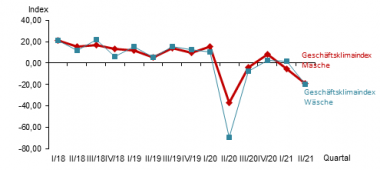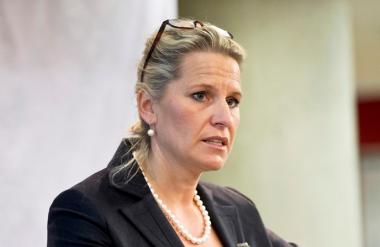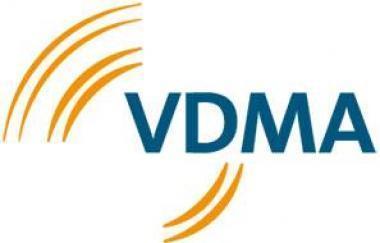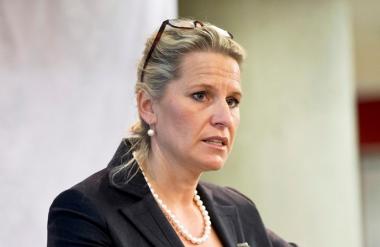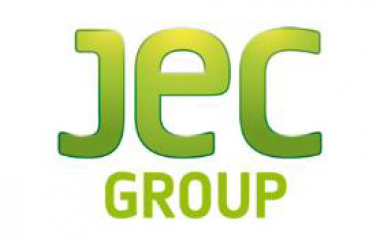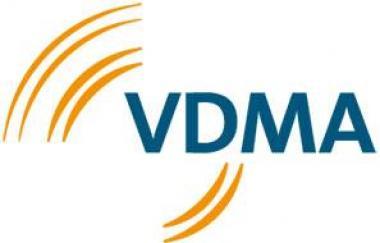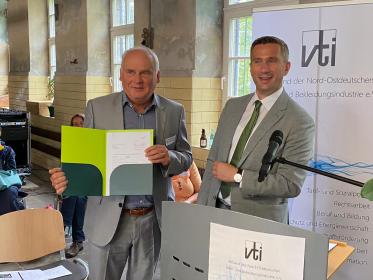Maschenindustrie in historischem Tief nach Lockdown
- Maschenbranche beklagt erschreckende Lockdown-Schäden: „Umsatzvernichtung im großen Stil„
Nach drei Monaten im harten Lockdown ist die Stimmung in der Maschenindustrie weit unter dem Nullpunkt angelangt. „In der Branche herrschen Verzweiflung und Zorn“, sagt Martina Bandte, Präsidentin von Gesamtmasche. „Die Politik lässt uns mittelständische Hersteller im Stich.“
Der Geschäftsklimaindex zum 2. Quartal sackte steil auf -19,3 Punkte ab (Jahresanfang: -5,17) Die Erwartungsindex für die kommenden drei Monate liegt mit -16,54 Punkten weiter im extrem negativen Bereich – dabei wurde die verbandliche Geschäftsklimaumfrage vor der aktuellen Lockdown-Verlängerung bis 18. April durchgeführt. Verbandspräsidentin Martina Bandte kritisiert die unkoordinierten und wenig effektiven Corona-Maßnahmen der Regierung: „Entscheidungen einiger weniger Politiker vernichten jeden Tag Existenzen und verursachen einen drastischen Anstieg der Arbeitslosigkeit.“
Martina Bandte zieht daraus das Fazit: „Unsere Industrie hat das Vertrauen in die wirtschaftliche und sozialpolitische Kompetenz der Regierung verloren. Konstruktive Vorschläge werden konsequent ignoriert. Und bei staatlichen Hilfen wie der Überbrückungshilfe III werden wir sogar wissentlich diskriminiert. Als Korrektiv bleibt uns nur noch der Rechtsweg.“
Die Umsatzeinbrüche in der Textil- und Bekleidungsindustrie waren bereits im Jahr 2020 beispiellos. Die Modebranche trifft es besonders hart: Nach Umsatzverlusten von gut 20 Prozent hat sie bereits knapp 9 Prozent ihrer Beschäftigten entlassen müssen. „Richtig bitter wird es aber erst im laufenden Jahr“, sagt Martina Bandte. Im nächsten Quartal muss fast ein Fünftel der Hersteller Personal abbauen. Kaufkraft und Konsumlaune dürften sich angesichts der desolaten Zustände in vielen Teilen der Wirtschaft in Grenzen halten.
Gesamtverband der deutschen Maschenindustrie - Gesamtmasche e. V.


